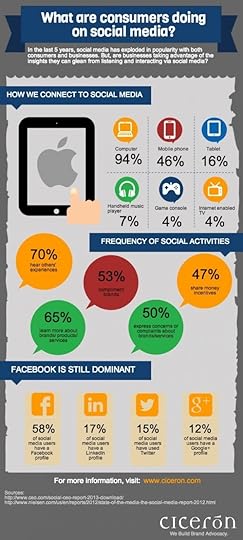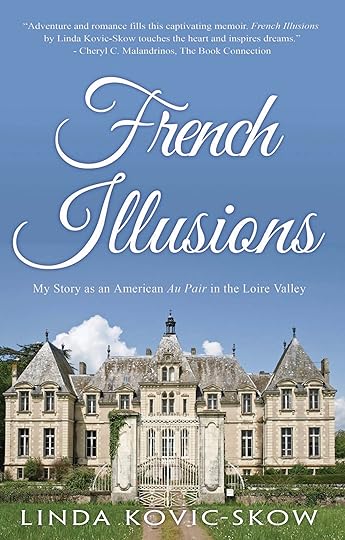Doris-Maria Heilmann's Blog, page 76
August 23, 2013
A Reason to Cut Royalties in Half?
.
Amazon is stepping up its efforts to acquire rights to author’s book content. Just recently Amazon bought world rights to two books by UK romantic comedy novelist Matt Dunn, in a deal signed directly with the author. A Day at the Office, originally self-published, had reached the Top 10 in the Kindle book chart.
Also in the UK this week, Amazon’s new Thomas & Mercer, thriller and mystery press, made its first acquisition with two self-published works from Mel Sherratt, Taunting the Dead and Watching Over You.
On the other hand, Aubrey Rose, an Erotic Romance author, turned down Amazon’s publishing deal. She wrote on her blog: “I Just Turned Down a Publishing Deal with Amazon.”
.
 “They offered me $5k, with 35% royalties. My book is already published, and they said they would just transfer it over in October. They were firm on the cover being theirs, something to do with rights. I sent them a link to the stock photo of my model, but they wouldn’t guarantee me approval power, and some of their covers were so bad I got worried.
“They offered me $5k, with 35% royalties. My book is already published, and they said they would just transfer it over in October. They were firm on the cover being theirs, something to do with rights. I sent them a link to the stock photo of my model, but they wouldn’t guarantee me approval power, and some of their covers were so bad I got worried.
I guess the agent stumbled across it, because I didn’t submit it anywhere, just got an email from them out of nowhere. At first I thought it was spam, haha.”
“The one really nice thing about this was that I was able to get in contact with an agent from the Knight Agency, and she gave me some good, honest advice about what I could expect if I shopped the book around. Also she read a few chapters of my book and liked it, and said I could send her the next one I wrote (new adult is apparently a hard genre to shop around to trad publishers unless you have a ton of sales already, since it’s such a new category.
Aubrey Rose, successfully self-published writer, says the offer from the online giant was far LESS than she could make on her own.
The Guardian wrote: “A self-published author of romantic erotica, who had dreamed of being a published author since she was a little girl, has found herself in the unlikely position of turning down a publishing contract with Amazon.com, after it turned out she could make a better living by going it alone.
Rose was only offered $5k, with 35% royalties, a post by the author on Reddit confirmed . But that turned out to be “less than I had made in my first month of sales”, Rose wrote on her blog.
Aubrey Rose, whose Me, Cinderella? was self-published in the US on Amazon.com and through Barnes&Noble, was put off by the small sum on offer and by the lack of control she’d have over her book covers – a perennial gripe among many “properly” published authors. On her blog, Rose wrote: “As a writer of big beautiful women romance, I’m acutely aware of the limited amount of cover material available to us and I DO NOT want a thin girl on my cover.”
She added that Amazon “couldn’t guarantee anything – from cover image to pricing to marketing. And I would have to pull my book from every publisher except Amazon.” She added: “It was hard for me to say no. Ever since I was a little girl I’d dreamed about being a ‘published author’ …”
.
One of my writer friends asked, ‘What are they guaranteeing you other than that they will take the publishing rights and half your royalties?’
.
<><><><><>
.
If you would like to get help in all things publishing, have your book intensively promoted and learn how to navigate social media sites: We offer all this and more for only $ 159 for 3 months. Learn more about this individual book marketing help: http://www.111Publishing.com/ Once you are on this website, click on Seminar to register.
Please feel free to check out all previous posts of this blog (there are 840+ of them : ) if you haven’t already. Why not sign up to receive them regularly by email? Just click on “Follow” in the upper line on each page – and then on “LIKE” next to it. There is also the “SHARE” button underneath each article where you can submit the article to Pinterest, Google+, Twitter, Chime.in, Facebook, Tumblr and to StumpleUpon.
Thanks a lot for following:
@111publishing
http://bit.ly/VmtVAS 111Publishing @ Google+
.
.
Tagged: A Day at the Office, Aubrey Rose, Knight Agency, Matt Dunn, Me Cinderella?, Mel Sherratt, Romantic author, Taunting the Dead, Thomas & Mercer, thriller and mystery press, Watching Over You







August 22, 2013
100-plus Ways to Promote Your Book for FREE
.
.
You might have read and saved already almost a hundred websites to announce your book for FREE from these reader communities and blogs*:
http://savvybookwriters.wordpress.com/2012/11/03/50-web-links-to-let-your-book-go-viral/
http://savvybookwriters.wordpress.com/2012/11/04/part-2-45-more-websites-to-promote-your-book/
.
However, there are even more possibilities to promote your book without incurring costs:
1. Show off your cover image
To submit a cover image of your book including a description / link – if it is an outstanding and creative book cover, show it here for free:
http://pinterest.com/111publishing/books-worth-reading/
http://bookcoversanonymous.blogspot.ca/
http://bookcoverarchive.com/
.
2. Use photo-sharing sites to show your cover image
http://Flickr.com
http://500px.com/
http://DeviantArt.com
.
3. Participate in a cover image contest
E-book Cover Design Awards by Joel Friedlander, for example this one here: http://www.thebookdesigner.com/2013/08/e-book-cover-design-awards-july-2013/
.
4. Show your book trailer everywhere
Upload your trailer not only on your website and blog, but also on Goodreads, Amazon, Google+, LinkedIn, Twitter and FB, but also on more than twenty major sharing sites, starting with YouTube and TubeMogul. Add a link to each of them on your website or wherever your book is sold.
See also an extensive list of video sharing sites for your book trailer in this guide book:
“111 Tips to Create Your Book Trailer”.
.
5. Google+ and its communities
There are dozens of reader communities alone on Google+ (for example ours http://bit.ly/VmtVAS) and you can access them from your main Google+ page. On all Google+ sites, images of your book’s cover can be shown, along with lengthy descriptions – several times a day on your own time line, however, on communities better only once in a while, not to be perceived as spammer.
.
Don’t forget the Basics!
Use your free author pages, that are provided from Amazon, Goodreads, Pinterest, Google+, FB, LinkedIn, and certainly your own webpage and your blog, where you can show a variety of your book’s cover and images from the content.
Why I mention this? Too many authors don’t take advantage of these free webpages, they get from online retailers and at their social media sites and where they can show and describe their books to lots of potential readers …
.
* These blog posts are officially copyright registered. To link to our blog posts, and let your own readers know about these websites, please use the RE-BLOG link on top of this page. Thanks! Please learn more about re-blogging here:
http://savvybookwriters.wordpress.com/2013/06/01/re-blogging-vs-copyright-infringement/
.
<><><><><>
.
If you would like to get help in all things publishing, have your book intensively promoted and learn how to navigate social media sites: We offer all this and more for only $ 159 for 3 months. Learn more about this individual book marketing help: http://www.111Publishing.com/ Once you are on this website, click on Seminar to register.
Please feel free to check out all previous posts of this blog (there are 840+ of them : ) if you haven’t already. Why not sign up to receive them regularly by email? Just click on “Follow” in the upper line on each page – and then on “LIKE” next to it. There is also the “SHARE” button underneath each article where you can submit the article to Pinterest, Google+, Twitter, Chime.in, Facebook, Tumblr and to StumpleUpon.
Thanks a lot for following:
@111publishing
http://bit.ly/VmtVAS 111Publishing @ Google+
.
.
Tagged: book trailer, DevianArt, Flickr, Google+ communities, photo-sharing sites, promote your book for free, SavvyBookWriters.com, savvybookwriters.wordpress.com, www.thebookdesigner.com







August 21, 2013
Benefits of Creating Your Own Newspaper Online
.
.
What is Paper.li?
It’s been around for a while and I have been following Paper.li sporadically – if content was created by one of my Twitter followers/authors. If you haven’t paid attention to these Paper.li articles yet: Creating your own Paper.li means, you can add your own Twitter / Google+ / Pinterest / FB content to it – not only that of your followers. One tool more for authors, to attract attention to their tweets and certainly to their writing!
.
Benefits of creating an online daily newspaper:
Paper.li is FREE for up to 10 newspapers daily
Build relationships with the people from whom you get content for your online daily newspaper. They are happy to see you get their content in front of your readers
Provide consistent and valuable information about a topic relevant to your readers
Set your online daily newspaper up once and it updates automatically every 24 hours – You need only to promote it daily
.
See what others wrote about Paper.li
Kelly Hungerford wrote:
“Paper.li is content curation service that enables you to become Editor-in-Chief of your own news site and publish a topic based newspaper from content you find anywhere on the web, such as Twitter, Google+, Pinterest, YouTube or Facebook.
What is online content curation?
Simply put, online content curation is the organizing, filtering, presenting and sharing of the most relevant digital content for a specific audience. People (and not machines) are the ones, qualified to make that final selection of content needed in order to identify the content that matters most to them, and for their audiences. We also think that these same people can greatly help their own communities to find their way through this “massive content world” we live in.
Why should I make a Paper.li?
The act of content curation and the filtering of content for specific audiences is strongly tied to the future of content. Millions of people are sharing content daily through social media channels and the numbers are growing, making it increasingly difficult to find, organize, share, discover and enjoy.
.
What’s the Secret of a fabulous Paper.li site?
Add your personal touch, greet your readers with an Editor’s note, make them feel at home
Choose the best content sources and news that apply to your audience
Edit each of your Paper.li with love, make sure your readers are getting a rich and relevant blend of news
Create an appealing custom background that ties into your passion
.
From Bloomberg BusinessWeek:
“When it comes to news, many Twitter users say they rely on the social network and the community of people they follow— rather than a big news organization—for links to important or interesting news stories. A Swiss start-up called Small Rivers has taken that idea and turned it into a service called Paper.li, which gathers links that your network has shared and turns them into a kind of social newspaper, complete with different sections for different topics. Is Paper.li now the future of news? Perhaps not, but it fills a niche in the social ecosystem of news.
Paper.li takes your Twitter stream and extracts links to any news stories, photos, videos, and so forth, which it then analyzes, using what the company calls “semantic text analysis tools,” in order to determine whether or not the stories are relevant. The site then displays the links and related content in sections based on the context of the link. The service also creates themed pages based on specific topics using #hashtags, such as #privacy or #climate, in much the same way that newspapers create special sections around an event or topic. Paper.li also automatically creates topical sections such as technology, arts & entertainment, photos, politics, and business. Users can also now create papers using a Twitter list. Embedded in a sidebar on each user’s customized paper is their Twitter stream.”
.
Setting up your dialy news is easy:
Go to Paper.li on Twitter. Click the “Sign In” button on the top right. As you are logged into your Twitter account, Paper.li will recognize your Twitter handle and ask you to confirm.
Click on “Create a Newspaper” and fill in your Twitter handle in the first box. Click on “create” and wait for your paper to be published.
You can change the title of your paper in “settings”, set the time for which it will generate the daily updates and choose whether you want Twitter to automatically tweet your paper when it’s updated.
More on YouTube:
How to grow your Twitter Following
Curating Twitter Content with Paper.li
.
<><><><><><>
.
If you would like to get help in all things publishing, have your book intensively promoted and learn how to navigate social media sites: We offer all this and more for only $ 159 for 3 months. Learn more about this individual book marketing help: http://www.111Publishing.com/ Once you are on this website, click on Seminar to register.
Please feel free to check out all previous posts of this blog (there are 840+ of them : ) if you haven’t already. Why not sign up to receive them regularly by email? Just click on “Follow” in the upper line on each page – and then on “LIKE” next to it. There is also the “SHARE” button underneath each article where you can submit the article to Pinterest, Google+, Twitter, Chime.in, Facebook, Tumblr and to StumpleUpon.
Thanks a lot for following:
@111publishing
http://bit.ly/VmtVAS 111Publishing @ Google+
.
.
Tagged: Bloomberg Businessweek, creating your own newspaper, curating, filtering content, Paper.li, social media channels







August 20, 2013
Nina Amir on How to Market Your Book

Today we are going to interview Nina Amir who will offer us some tips on how to market your book on the Internet. Nina is a writing coach who motivates writers to create publishable books and to enhance their careers as authors.
She is the author of the bestselling How to Blog a Book: How to Write, Publish and Promote Your Work One Post at a Time…
Andy Ross, Literary Agent, interviewed Nina Amir - and I couldn't have said it better : )
Promoting your Book
.
"For some reason, aspiring and published authors seem to cling to the outdated idea that a publisher will do the hard work of promoting their book for them. That’s why writers often want to become traditionally published. But that’s not a good reason to pursue this publishing route. If you want your book to succeed, you will have to do the same amount of work to promote your book whether you self-publish or traditionally publish."
.
Blog a Book
"Well, you can blog a book. Many bloggers with huge readerships have landed book deals because they unwittingly test marketed an idea for a book. Later, an agent or acquisitions editor saw the potential for a book based on the material in the blog."
.
Read this interesting interview on Andy Ross' website.
August 19, 2013
Like to Write an Article for SavvyBookWriters?

Guest Blogs anyone?
.
For the past two years I have written more than 880 blog posts for SavvybookWriters, which have been read by over 265.000 people. These post’s URL’s have been submitted regularly to many Social Media sites, such as Google+, Twitter, Pinterest, Chime.in, Tumblr, StumpleUpon, and to dozens of Google Communities as well as Goodreads. Many other bloggers re-blogged them too.
ALEXA Traffic Rank
Our ALEXA Traffic Rank in the USA as of August 18th, 2013 was: 46,056 !!! out of of 500.000 sites, which means being in the top 10% in America. Our worldwide rank was 142,976 – out of almost 1 BILLION websites. If I do the math right SavvyBookWriters should be in the top 6% of the world’s websites? Have to use a calculator : )
.
Guest Posts anyone?
However, this blog would benefit from time to time by a variety of voices, additional advice and different points of views. So, I am now inviting guest posts to our successful blog.
.
Content Writing
You might have read an article, I wrote earlier this month, explaining how authors can get publicity for their books by writing content. Blog guest posting is one possibility of many, and here is the best reason for it – beside the fun of writing:
.
Link to your book
Guest posting is a great way for your blog and your book to get some fantastic exposure. You certainly can add links from your guest blog to your website, your own blog or the retailer where your book is sold. At the same time you’ll be helping readers (most of them are writers) of this blog, by providing them with useful and relevant information.
.
We welcome posts from writers or bloggers and others in the publishing industry, who know from their own experience what they are writing about, and who are able to produce quality content, edited and maybe even with an image.
.
Here are some guidelines for you:
Your Guest Post must be original. It should be a new, original post, written entirely by you. No articles from article directories.
Topics: should be relating to writing, publishing and book marketing. It doesn’t have to be specific to e-books.
Length: somewhere between 500 words to 700 words. Longer posts if the subject requires it.
Exclusivity: for 30 Days. By submitting a guest post to us, you agree not to post it anywhere else online for a period of 30 days after it first appears on this blog. After this time the article is yours again. Exemption: You might re-blog it on your own website, as soon as it is online on SavvyBookWriters. Use the re-blog button on top of our blog.
Don’t query. Just send your entire post to 111publishing *at* gmail . com – copy and paste it directly into the email body – No attachments will be accepted!
Subject line for the email: Guest Post
Please include a short “About the Author” bio of up to 150 words (including the link to your Web site or book sales page. Using the http://About.me function, you can pack lots of links in one, and readers can find your Social Media sites as well.
The link back to your website must be in the Author Bio, not within the article itself. Your bio link must link to your own author site, or to your sales book of your book. No affiliate links and no links to unrelated sites / products.
Please submit a polished post that you would be proud to have published.
Become familiar how to write for the web
.
You will be contacted within 3 working days. Thanks a lot for your interest and I do look forward to hear from you!
Doris
.
<><><><><>
.
If you would like to get help in all things publishing, have your book intensively promoted and learn how to navigate social media sites: We offer all this and more for only $ 159 for 3 months. Learn more about this individual book marketing help: http://www.111Publishing.com/ Once you are on this website, click on Seminar to register.
Please feel free to check out all previous posts of this blog (there are 840+ of them : ) if you haven’t already. Why not sign up to receive them regularly by email? Just click on “Follow” in the upper line on each page – and then on “LIKE” next to it. There is also the “SHARE” button underneath each article where you can submit the article to Pinterest, Google+, Twitter, Chime.in, Facebook, Tumblr and to StumpleUpon.
Thanks a lot for following:
@111publishing
http://bit.ly/VmtVAS 111Publishing @ Google+
.
.
Tagged: Alexa Rank, Alexa traffic rankings, blog post, Guest Blog, guest blogger, publishing blog, savvybookwriters, writers blog







Twitter, Google+, Pinterest, Facebook, LinkedIn – What People Do on Social Media
.
To promote your books through social networking, take advantage of these statistics from Nielsen, the worlds most biggest internet statistics firm, and find out what your followers and friends on Social Media appreciate most in your posts. Translated to books and publishing, this would be:
Learn from other authors’ experiences
Learn more about publishing and marketing books
Share money incentives (free or reduced books)
Find out about interesting articles/blogs/news
Get encouragement
Communicate with your readers!
Social media is a fantastic way to foster communication between you and your readers, but you first have to be able to find them and understand how they use it. Search for “readers” or “reviewers” on social media sites when looking for new followers and friends. They are the most important networking partners, and the one’s who will promote your book.
.
.
by Tiffani_Allen.
Explore more infographics like this one on the web’s largest information design community – Visually.
.
Most popular networking sites
What are the biggest and most popular network sites – including blogs? Yes, blogs are very important for social networking! Read the full Social Network Report on Nielsen’s website.
Content Marketing is a smart way to connect with readers. Blogging is actually giving them a sample of your writing style and skills. And who doesn’t like sampling? See more statistics about blogging / content marketing on Ciceron.com.
Where do you stand compared to your competitors – millions of other writers – in the online world?
.
<><><><><>
.
If you would like to get help in all things publishing, have your book intensively promoted and learn how to navigate social media sites: We offer all this and more for only $ 159 for 3 months. Learn more about this individual book marketing help: http://www.111Publishing.com/ Once you are on this website, click on Seminar to register.
Please feel free to check out all previous posts of this blog (there are 840+ of them : ) if you haven’t already. Why not sign up to receive them regularly by email? Just click on “Follow” in the upper line on each page – and then on “LIKE” next to it. There is also the “SHARE” button underneath each article where you can submit the article to Pinterest, Google+, Twitter, Chime.in, Facebook, Tumblr and to StumpleUpon.
Thanks a lot for following:
@111publishing
http://bit.ly/VmtVAS 111Publishing @ Google+
.
.
Tagged: . Nielsen, Frequency of Social Media activities, how we connect on social media, Pinterest, social media statistics, social networking, Twitter







August 18, 2013
French Illusions – by an American Writer
.
.
Memoir of an American au-pair for an aristocratic French family in a Loire Valley chateau. She pretended to speak French when applying for the job at a Chateau in France…
French Illusions, the first of two books based on the author’s diaries, takes place in the summer of 1979. Linda Kovic contracts to become an au pair for an aristocratic French family in the Loire Valley. In order to secure the position, she pretends to speak the language, confident she’ll be forgiven once she arrives at her destination.
.
This book captures Linda’s fascinating real-life story inside and outside the Château de Montclair. Her compelling memoir details her challenges and triumphs as she tries to adjust to her new life with Madame and Monsieur Dubois and their children.
When Linda encounters, Adam, a handsome young student, her life with the family becomes more complicated, adding fuel to her internal battle for independence. Join Linda on her unforgettable adventure of discovery and romance in an extraordinary part of the world.
.
French Illusions is a lovely read that captures the flair of France. Are you maybe interested in working overseas and indulging in French culture? Or always wanting to travel to France? Learn the French language? Then this book is perfect for you: entertaining and at the same time adding a touch of “savoir-vivre en France” and showing life in a French aristocratic family.
.
About the author:
Linda Kovic-Skow resides in Gilbert, Arizona. She earned an Associate Degree in Medical Assisting in 1978 from North Seattle Community College and a Bachelor of Arts in Business Administration from Seattle University in 1985. She has been married for 28 years and has two daughters. An enthusiastic traveler, Linda also enjoys boating, gardening and socializing with friends. French Illusions, her debut memoir, is the culmination of a three-year project and will have a sequel pretty soon.
Meet the author here:
Blog http://lindakovicskow.com
Trailer: http://www.youtube.com/watch?v=QikoNLXZP_o&feature=youtu.be
http://www.goodreads.com/author/show/6585288.Linda_Kovic_Skow
https://www.facebook.com/lindakovicskowfanpage#
https://twitter.com/LindaKovicSkow
http://pinterest.com/lindakovicskow/french-illusions/
.
Get the book in paperback and e-book format here:
Paperback: http://www.amazon.com/dp/1457514575
E-book: http://www.amazon.com/dp/B00BG0EV8A
http://www.barnesandnoble.com/w/french-illusions-linda-kovic-skow/1113367643?ean=9780988464001
http://www.kobobooks.com/search/search.html?q=French+Illusions
https://ebookstore.sony.com/ebook/linda-kovic-skow/french-illusions/_/R-400000000000000871875
http://www.e-sentral.com/search/q/french+illusions
http://www.thecopia.com/catalog/search.html?key=french+illusions&x=21&y=16
http://www.gbsbooks.com/product.aspx?isbn=9781457514579
.
<><><><><>
.
If you would like to get help in all things publishing, have your book intensively promoted and learn how to navigate social media sites: We offer all this and more for only $ 159 for 3 months. Learn more about this individual book marketing help: http://www.111Publishing.com/ Once you are on this website, click on Seminar to register.
Please feel free to check out all previous posts of this blog (there are 840+ of them : ) if you haven’t already. Why not sign up to receive them regularly by email? Just click on “Follow” in the upper line on each page – and then on “LIKE” next to it. There is also the “SHARE” button underneath each article where you can submit the article to Pinterest, Google+, Twitter, Chime.in, Facebook, Tumblr and to StumpleUpon.
Thanks a lot for following:
@111publishing
http://bit.ly/VmtVAS 111Publishing @ Google+
.
.
Tagged: au-pair, Chateau, French Illusions, French language, Life in France, lifestyle in France, Linda Kovic-Skow, Loire Valley, working overseas







August 17, 2013
Do You Understand Your Publishing Contract?
.
.
Traditional Publishing Contracts – Part Three of a Series
Signing a “Standard” Publishing Contract can have serious consequences for authors. A publisher’s standard agreement could contain a one-sided non-competition clause that prevents the author from using material from his manuscript in day-to-day business, such as blogs posts, magazine articles, even tweets. Or a clause in the contract might state that the author is prohibited to produce another work that competes with the title under contract without prior permission of the publisher. Well, what authors do with their time is their business, isn’t it? Shouldn’t they be able to write other books, for themselves or for other publishers? Are they slaves of the publisher?
Read the examples of book contract clauses here and in number two of this series (compare
them with your own contract) and find out “what it means” to you as the author:
.
Publication and Revised Editions:
In some instances the book project never gets off the ground and without appropriate contract provisions, it may end up in legal limbo. What happens to the rights in the book in those events? Do the rights revert to the author? Do they remain with the publisher? What about revised editions? Will they be considered a new book? How will royalties be calculated on these newer versions?
.
Competing Works:
“The author shall not publish any book on the same or similar subject matter that would directly
compete in the marketplace with sales of this manuscript. The author shall not undertake to write
another book for another publisher until the manuscript is delivered.”
What it means: If you have a contract for any type of cook book, say one about vegetarian
recipes, you cannot write a barbecue cook book and offer it to the producer of George Foreman
barbecues, and even a baking book, offered to another publisher who is specialist in bake
recipes is out of question.
.
Unsatisfactory Material:
“If the Material for a given Book is not, in the publisher’s sole judgement, satisfactory in all
respects, the publisher may terminate this agreement upon written notice.”
What it means: The Publisher can end the deal for pretty much any reason it sees fit – as the
contract clause has no specific criteria to determine – or for no reason at all…
.
Marketing:
“The Publishing House will also provide marketing/sales services for your book; this involves
handling sales to bookstores and direct mail sales.”
What it means: This unprofessional publisher has no clue about what’s involved in marketing.
He makes the author believe that delivering a book which is ordered from a bookstore or from
their website means marketing. Delivering is not marketing! Selling is not marketing! The problem is that when you enter into the publishing agreement, you don’t know whether your current book will sell well, and whether the publisher will do a good job marketing it.
The author should insist to have the publisher establish some sort of marketing plan in advance
and this plan should be part of the contract so that the author has some recourse should the
publisher not promote the book as originally discussed.
.
General Provisions:
“In the event of bankruptcy or liquidation of Publisher for any cause whatever, Author shall have
the right to buy back the publications at fair market value to be determined by agreement or
arbitration, and this Agreement shall terminate. If Author does not purchase remaining copies of
the book, the representative of Publisher shall have the right to sell same at the best obtainable
price without payment of royalty to Author.”
What it means: …. this Agreement shall terminate: there is no set time limit. It can terminate in
three days, three weeks, three months. It is the sole decision of the publisher / liquidation trustee.
And the author does not get any compensation whatsoever, if the publisher goes bankrupt, while
the author is in vacation and who doesn’t know that an agreement is terminated.
.
Indemnity:
“The author shall indemnify and hold the publisher harmless from any losses, expenses,
settlements, recoveries, or judgement arising from or related to any claim, action or proceeding
which would constitute a breach of author’s representations and warranties, especially to hold
the publisher harmless against any expenses incurred, including counsel fees, in connection
with any claim, demand, action or proceeding against Publisher or any other person, firm or
corporation selling the Work”
What it means: The author has to reimburse even third parties, such as movie companies, TV,
magazines, firms or corporations who reprint excerpts or selling the work and even subcontractors
of the publisher for expenses in any claims. Publishers will use lawyers to get money it feels it is owed, but not use lawyers to protect the author in case of being sued (for libel, copyright issues etc.). Publisher takes the lion’s share of the profits, but doesn’t make any effort to protect the acquired work from any lawsuits, so the author takes all the blame and financial burden. Example: Some books involve not only original writing, but also quotes from other sources, photographs, illustrations etc. Such materials should be licensed by an agreement in writing from the owner of the rights to such materials, and should be done by the publisher as he is the one profiting most from the book’s success.
Authors could face continual threat of action against them by the publisher at any time and no
definable cause – according to some clauses in publishing contracts. Such penalties could
include:
refusal to publish
withholding payment due
refusal to extend time for delivery pay advances, and pay royalties
reimbursements for advances or monies due
.
Option on Next Work:
“Publisher shall have the exclusive option to acquire upon mutually agreeable terms the publishing rights to the next (i.e. written after the work) full-length work written by the author. The author shall not submit the said next work to other publishers, nor seek offers from or negotiate with others, with respect thereto.”
What it means: Any book that the author writes after delivering the manuscript to the publisher
has to be offered to him first – and only when the publisher refuses, the author is allowed to pitch
another publishing house.
.
Out-of-Print and Reversion of Rights:
“In the event that after three years from the date of first publication, the work shall not be in print
and for sale in any edition by the publisher or any of its licensees and after written notice from the
author shall not within six (6) months be reprinted by the publisher or a licensee and offered for sale, (unless prevented from doing so by circumstances beyond its control) then in either of these events, the author shall have the right to terminate this agreement and upon written notice to that effect by the author to the publisher, all rights granted under this agreement shall revert to the author, subject to any outstanding licences and the publisher’s continuing right to participate in the proceeds thereof”.
What it means: The publisher alone decides if a book it “out-of-print” – which can be after three
years or never, as he can easily put the book on POD (print-on-demand), which means the
book is available and “in-print” indefinitely.
What events kick off the termination other than merely the book being declared “out of print” by
the publisher? What are the author’s and publisher’s rights in the event of termination? Can the
author get a complete list of outstanding licenses and deals made by the publisher? What are
the author’s rights to buy inventory? Who owns the rights to the work in the event of termination?
.
Conclusion
Don’t become a slave of publishers!
Standardized contracts could be powerful negotiation tools. However, some authors will simply sign them, without even asking questions. These “standard” book contracts may have unexpected and unfair consequences for authors and their work. It is essential that authors approach the negotiating process with both, knowledge of their rights as well as a broad vision about what may happen to the book over the course of its publishing lifetime and deal with those potentialities within the contract.
.
Do use the comprehensive Book Contract Checklist by Attorney Lloyd J. Jassin!
It will help you to prepare for a meeting with your contract lawyer, to check out your publishing
contract in all details and to list your amendments you might have for your publishing contract.
As J.A. Konrath wrote in his blog: “The Big 5 are in such lockstep when it comes to this boilerplate contracts, they have effectively created a unified front. In other words, there is simply no other option because the Big Publishing Cartel have the unfair-contract market thoroughly cornered.”
Don’t accept clauses in “standard” book contracts, that denies you as an author not even
remotely equal power. You can better do on your own! Especially as nowadays authors have to
market their books themselves – and more and more even have to deliver a fully edited
manuscript at their own cost.
.
Resources:
What Not to Miss When Negotiating Your Book Publishing Contract
Legal Corner for Authors, Levine Samuel, LLP
.
<><><><><>
.
Tagged: Advances and Royalties, Book club publication, Book Contract Checklist, Contract Lawyer, Indemnity, Minimum Wage for Authors, Out-of-Print Book, Publishing contract







August 16, 2013
The Traps in Publishing Contracts
Traditional Publishing Contracts – Part Two of a Series
There should be a large neon sign that says: NEVER, NEVER, NEVER sign a contract without having your contract lawyer going over it and explaining it to you in detail – sentence for sentence. The contract clauses described here in this blog post are the “norm” in publishing. It is difficult to see how your publishing agreement will play out in the long term, what you sign today could have profound, long term consequences.
Contract attorney Ivan Hoffman explains in his blog:
“In the US, many contracts that consumers commonly sign, such as for mortgage or auto loans or to
obtain a credit card, are subject to statutory requirements for fairness, clarity, etc. If some of the clauses and drafting techniques commonly included in publishing contracts used by publishers were found in consumer contracts, those provisions would be deemed void and unenforceable. In some cases, they might even constitute consumer fraud and would subject publishers to fines and penalties.”
.
My advice: Before you even have a publishing contract meeting, do your homework and google the publisher, adding the word “complaint”. You might be surprised what you will discover!
.
Publishing contracts are not negotiated from the ground up between the author and the publisher. They are prepared by the Publisher and delivered to the Author as though ready for signature. And many authors sign without understanding what the contract contains or what rights they are giving up. They focus only on the royalty rate and the advance, if there is any. While those points are important, they might be far less important than some other provisions in the agreement. Authors should not assume a “standard” contract will be fair or equitable. Nor should authors assume they will be able to easily get out of that contract if found out later to be unfair.
.
Samples of unfavorable publishing contracts
Duration of the contract and Territory:
“Author grants and assigns to publisher the sole and exclusive rights to the manuscript throughout the
territory, (which means the World – I have seen contracts that state “throughout the Universe” ….) during the entire term of the copyright and any renewals and extensions thereof.”
What is means: This contract is for the life of the author, plus 70 years after her death, plus renewals and extensions, binding to your heirs as well… Have you ever seen or signed a contract that extends beyond your lifetime? Pretty unfair and one-sided! It also should have a clause, that you get the rights back if the publishers doesn’t exploit it in a given time. For example: if they don’t translate your book into French, Spanish or Cantonese, they should state in the contract to return the rights for those countries to you, say after 2 or 3 years. Most likely they will refuse to …
.
Rights granted by the author to the publisher:
“The Publisher has the exclusive rights to:
Magazine or newspaper before and following publication
Publication of condensations, abridgments, and in anthologies
Book club publication
Direct sale and mail order”
What it means: In their contracts, publishers will almost always seek to obtain ALL rights to the
manuscript. No author should give up all rights. If the author is in a stronger bargaining position, the
author may be able to withhold electronic rights, foreign rights or any other of the rights. If for any reason the contract terminates, there should be a clause, dealing directly with what happens to the rights in the book in those events. Do the rights revert to the author?
.
Manuscript delivery and unsatisfactory material:
“If the manuscript for a book is not, in publisher’s sole judgement, satisfactory in all respects, the
publisher may terminate this agreement upon written notice.”
What it means: the Publisher can end the deal for pretty much any reason it sees fit, or for no reason at all. This clause has no single criteria to determine if a book is satisfactory – and it doesn’t give the author equal power to terminate the contract if she/he is not satisfied by the book the publisher created, for example if the publisher did not edit the book properly, priced it to high for the market or choose a terrible cover or a ridiculous title?
.
Advances and Royalties
What is an advance
An advance payment is not a signing bonus. Instead, it is money the publisher is paying the author to
live on while the book is being written. The publisher will be paid back this money once the book starts
selling. They will take the advance money right off the top of your earnings. Depending on the size of
your advance and how well your book sells, you may not receive any royalty payments for a long time. Maybe never. When a book sells enough copies to cover the cost of the advance, it means the book “has earned out.” Now your royalties can start rolling in …
.
Royalties:
“Hardcover: 10% of the invoice price for the first 5000 copies, 12.5% thereof for copies from 5001 to
10,000, and 15% thereof for copies in excess of 10,000. Mass Market Paperback: 8% of the invoice
price for the first 150,000 and 10% thereof for all copies thereafter. On Ebooks: 25% of the amounts
received by Publisher, excluding taxes and handling charges.”
What it means: Between 8% and 12.5% for books is a pitance, and a lousy pay for the hard work of the author. And equally outrageous is what the author gets on e-books: 25% royalties – which is equivalent to 17.5% of the list price. However, the publisher gets 52.5% of the list price! Compare it to 70% you get from Amazon for books between $2.99 and $9.99. Do I need to say more?
.
Royalty Payments
“Publisher shall provide Author with semi-annual royalty statements showing the amount due to the
Author, by April 1 and October 1 of each year for the six-month period ending the preceding December 31 and June 30th, respectively.”
What it means: These publishers have never heard from a computer, nor do they use any : ) It does
not take 6 months to compile the data for sold books, Amazon shoes your sales in mere minutes, and
Barnes&Noble, CreateSpace and Kobo pay monthly. But if the money is withheld for months,it’s to the Publisher’s advantage. The longer, the more interest they can earn on the principal due to delayed
payments.
.
Joint accounts:
“Books one, two, and three will be held in a joint and open account, and the publisher shall not pay the
author’s share of royalties and subsidiary rights income on any book of the work until the author’s share of royalties and subsidiary rights income for all books exceeds the total advance.”
What it means: If you have a three-book deal with an advance of $60,000, you don’t make a cent in
royalties until all $60,000 has earned out – if for example book one earns already royalties, those
royalties go toward paying off the advances on books two and three. This is called a basket account or joint accounting. This way you might not earn anything, even with one very successful book, just
because other books in the basket weren’t as successful, often at the publishers fault – or haven’t been released yet.
.
Statements and Payments
“Books one, two, and three will be held in a joint and open account, and the publisher shall not pay the
author’s share of royalties and subsidiary rights income on any book of the work until the author’s share of royalties and subsidiary rights income for all books exceeds the total advance.”
What it means: If you have a three-book deal with an advance of $60,000, you don’t make a cent in
royalties until all $60,000 has earned out – if for example book one earns already royalties, those
royalties go toward paying off the advances on books two and three. This is called a basket account or joint accounting. This way you might not earn anything, even with one very successful book, just
because other books in the basket weren’t as successful, often at the publishers fault – or haven’t been released yet.
.
Reasonable Reserve
“The publisher may retain a reasonable reserve against returns in any accounting period. If the author
receives an over-payment of royalties resulting from copies of the work reported, sold, but subsequently returned, the author shall repay such amounts to Publisher to the extent that Publisher is not able to deduct such amounts from monies due to Author at the end of the royalty payment period after the period in which the over-payment is discovered.
What it means: This looks like a Publisher can pretty much withhold money from an author, and it
doesn’t define what a “reasonable” reserve is.
.
As contract lawyer Ivan Hoffman wrote:
“However, in the absence of consumer-type protections, the laws governing (publishing) business contracts assume that each party to such contracts will watch out for themselves. If both parties sign a contract, the strong presumption is that each party understood what the contract meant and voluntarily agreed to be bound by it. In extreme cases, if a lawsuit were filed, a contract might be deemed unconscionable and voided in whole or in part, but that is a high hurdle to clear.”
Knowing the problem is widespread, doesn’t mean it should be ignored. Big companies are exploiting artists. They are getting rich, and the creators are getting shafted.
.
Stay tuned for number three (final) in the series, and spread the word, RE-BLOG these articles, so that as much writers as possible learn about the tactics of the publishing industry and how to read between the lines.
.
Resources:
Book Publishing Contracts: Checklist of Deal Terms
Author Concerns and Complaints at Crimson Romance Contracts
Blog Posts by a New York Contract Lawyer
.
<><><><><>
.
If you would like to get help in all things publishing, have your book intensively promoted and learn how to navigate social media sites: We offer all this and more for only $ 159 for 3 months. Learn more about this individual book marketing help: http://www.111Publishing.com/ Once you are on this website, click on Seminar to register.
Please feel free to check out all previous posts of this blog (there are 840+ of them : ) if you haven’t already. Why not sign up to receive them regularly by email? Just click on “Follow” in the upper line on each page – and then on “LIKE” next to it. There is also the “SHARE” button underneath each article where you can submit the article to Pinterest, Google+, Twitter, Chime.in, Facebook, Tumblr and to StumpleUpon.
Thanks a lot for following:
@111publishing
http://bit.ly/VmtVAS 111Publishing @ Google+
.
.
Tagged: Advances and Royalties, basketing, Book club publication, joint accounts, Minimum Wage for Authors, Publishing contract, Reasonable Reserve, Traps in Publishing Contracts







August 15, 2013
Less than Minimum Wage for Authors?
.

Justicia
.
Traditional Publishing Contracts – Part One of a Series
You might remember an article How Harlequin Publishing Deceives Their Authors from last summer in this blog, about the planned class action suit against the publisher. Today I stumbled about a sequel of J.A. Konrath’s blog: Harlekin Fail, Part 2, where he explains the contract practices of the trade publishers in general, and how they deceive their authors. From today on we will look more closely into these practices.
.
When offered the opportunity to publish traditionally, about two-thirds of self-published authors are interested. The supposed prestige of a traditional publisher, the wide distribution a publisher can generate and help with marketing, are the reasons, cited in surveys.
However the perception of traditional publishing is often not up to date in public, as the way of book marketing (and the whole traditional publishing business) has totally changed. Only celebrity authors get full promotion, other writers have to fend for themselves, and they often do not even know that their books have only a maximum of three months to survive on bookstores shelves until they will be returned to the publisher or discarded. Read also What Publishers Won’t Tell You.
.
In the last hundred years, the only way to get published, or better said, get distribution for a book, was to sign a contract with a publisher. Writers had almost no choice, then to accept the publishing contract terms – until the advent of author-publishing, which was the norm since about a hundred years ago.
.
Imagine, an agent / publisher offers you a publishing contract.
Best advice for any author is to know what they get into, to understand the publishing contract and to consult a contract lawyer before signing the papers. As Copylaw.com wrote: “While it is difficult to see how your publishing agreement will play out in the long term, the decisions you make today could have profound, long term consequences.”
This will be a series of articles, trying to bring some light into the murky waters of these universally unfair and mostly, non-negotiable publishing contracts. Disclaimer: Nothing in these articles can or should be taken as legal advice.
.
What are the subjects / paragraphs of a publishing contract? Let’s look in detail at
Duration of the contract
Rights granted by the author to the publisher
Territory for these rights
Manuscript Delivery
Advances and Royalties
Statements and Payments
Publication
Competing Works
Unsatisfactory Material
Out-of-Print Termination
Reversion of rights
.
Even if you are still eager to sign a contract, you should at least know what you (and maybe even your heirs) get into, and what the contract clauses really mean. This series about details in publishing contracts will also help you to ask the right questions when you meet with a lawyer, specialized in publishing contracts / contract law.
.
The entire publishing industry is using boilerplate contracts and universally, one-sided clauses to exploit authors – same as it has happened (and often still does) in the music industry – until the dawn of Indie Music … and now the music industry is in deep trouble, as many artists became their own producer and distributor. Which will ultimately happen with parts of the publishing industry. Look at all the mergers of publishing houses, that happened recently!
.
Their system is designed to take advantage of Authors’ naivete and their lack of bargaining power, and it uses the promise of book publication as a carrot to get them to accept biased terms. However, there are a few authors who managed to have at least one or the other of the contract clauses changed.
.
Who fights for better publishing contracts? No one does …
Authors have no one to fight for their rights.
Authors won’t help each other, they don’t band together. The successful ones do not want to compromize their bestsellerdom. Newbie authors and aspiring writers are eager to become published, even at less favorable terms.
Agents really work for the publishers.
And even if they would have the courage to fight the status quo, chances are their authors wouldn’t back them – out of fear to form a united front against publishers.
Publishers certainly won’t change.
Because they have no incentive to. They can pick and choose among millions of manuscripts. And they can, or had, certainly theoretically only ;- ) arranged for universal contract terms and royalties among their peers …
.
Let’s look into the details of publishing contracts in the next two of the series, in order to find out and to realize what these contract clauses mean for authors. Stay tuned, and spread the word, re-blog these articles, so that as much writers as possible learn about the tactics of the publishing industry.
.
Sources / Read also:
Negotiating Your Book Contract
Comments on Unfair Contracts (by a lawyer)
Quick Guide to Book Contract Trouble Spots
Negotiating Book Contract Terms and Royalties
What Not to Miss When Negotiating Your Book Publishing Contract
.
<><><><><>
.
If you would like to get help in all things publishing, have your book intensively promoted and learn how to navigate social media sites: We offer all this and more for only $ 159 for 3 months. Learn more about this individual book marketing help: http://www.111Publishing.com/ Once you are on this website, click on Seminar to register.
Please feel free to check out all previous posts of this blog (there are 850 of them : ) if you haven’t already. Why not sign up to receive them regularly by email? Just click on “Follow” in the upper line on each page – and then on “LIKE” next to it. There is also the “SHARE” button underneath each article where you can submit the article to Pinterest, Google+, Twitter, Chime.in, Facebook, Tumblr and to StumpleUpon.
Thanks a lot for following:
@111publishing
http://bit.ly/VmtVAS 111Publishing @ Google+
.
.
Tagged: contract clauses, contract law, contract negotiations, Harlequin Class Action Suit, J.A. Konrath, non-negotiable publishing contracts, Publishing contract, Rights granted by the author to the publisher
















